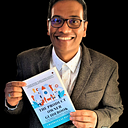Enhancing the Mentoring Experience with ChatGPT

Mentoring is a powerful way to support and guide individuals in their personal and professional development.
While traditional mentoring involves one-on-one interactions with a human mentor, technology, like ChatGPT, can complement and enhance the mentoring experience in several ways
Mentoring is a relationship in which a more experienced or knowledgeable individual, known as the mentor, provides guidance, support, and advice to a less experienced or knowledgeable person, known as the mentee.
The mentor typically shares their expertise, knowledge, and insights to help the mentee develop specific skills, knowledge, or personal or professional growth.
Key aspects of mentoring include:
Guidance: Mentors offer advice, share their experiences, and help mentees navigate challenges or opportunities in their personal or professional lives.
Knowledge Transfer: Mentors pass on their knowledge and expertise in a particular field, industry, or area of interest.
Skills Development: Mentors may assist mentees in developing specific skills, whether they are technical, leadership, or soft skills.
Career Development: Mentors often support mentees in setting and achieving career goals, providing insights on career paths and development opportunities.
Personal Growth: Mentoring can extend beyond professional development and include personal growth, building confidence, and improving decision-making.
All the above steps can be easily get benifit by using ChatGPT and also
Reflective Conversations: Through conversations with ChatGPT, mentees can engage in self-reflection, gain insights into their aspirations, and discover a clearer path for personal or professional growth.
Access to Knowledge: ChatGPT serves as a vast repository of information. It can provide mentees with instant access to a wide range of topics, helping them gain a foundational understanding of various subjects.
Language and Writing Support: Whether it’s improving writing skills, checking grammar, or seeking language translation, ChatGPT can help mentees enhance their communication abilities.
On-Demand Learning: Mentees can use ChatGPT to learn at their own pace. They can ask questions, seek explanations, and explore new ideas when it’s most convenient for them.
Some common challenges in mentorship include:
- Time Constraints: Both mentors and mentees often have busy schedules, making it challenging to find time for regular meetings and communication.
- Misalignment of Goals: If the mentor and mentee have conflicting objectives or expectations, it can lead to frustration and dissatisfaction.
- Mentor Availability: Finding a willing and available mentor with the desired expertise can be a challenge, particularly in high-demand fields.
- Communication Barriers: Differences in communication styles or preferences can create misunderstandings and hinder effective communication.
- Mentor Burnout: Mentors may become overwhelmed by the demands of multiple mentees or by providing guidance over an extended period.
- Mentorship Quality: Ensuring the quality and effectiveness of mentorship relationships can be difficult, as there may be variations in mentorship experiences.
- Diversity and Inclusion: Mentoring relationships may face challenges related to diversity and inclusion, as mentorship opportunities may not always be equitable.
- Feedback: Providing and receiving constructive feedback can be challenging, as mentees may be reluctant to seek guidance, and mentors may struggle to deliver feedback effectively.
Role Confusion: Sometimes, the roles and responsibilities of the mentor and mentee are not clearly defined, leading to confusion and potential conflicts.
Mentorship Termination: Knowing when and how to end the mentorship relationship can be challenging, as it requires thoughtful closure and evaluation.
Geographical Distance: In virtual mentorship relationships, mentees and mentors may be in different locations, which can present logistical challenges.
Mentorship Resistance: Some individuals may be resistant to the concept of mentorship, perceiving it as an intrusion into their work or a threat to their autonomy.
Mentor and Mentee Mismatch: In some cases, the mentor and mentee may not be well-matched in terms of personality, communication style, or expertise, leading to a lack of chemistry.
Have you experience such challenges with mentorship?
All such challenges never exists when we use ChatGPT for mentorship!
ChatGPT served as a valuable resource for knowledge sharing. It could provide information on a wide range of topics. It helped individuals understand complex concepts, explained terms, and provided insights based on available data.
When faced with challenges or problems, people used ChatGPT as a tool for problem-solving. They could brainstorm solutions with it and explore alternative approaches and suggestions.
For those seeking to learn new skills or subjects, ChatGPT acted as a helpful learning aid. It provided explanations, recommended learning resources, and answered questions to supplement the learning journey.
In the realm of language and writing, ChatGPT offered valuable support. It helped with grammar and style suggestions, assisted in language translation, and even generated written content.
In technical fields, individuals found ChatGPT to be a reliable source of programming and coding assistance. It provided code snippets, offered debugging tips, and explained algorithms to help with technical challenges.
ChatGPT was also a wellspring of inspiration for creative endeavors. It generated ideas for projects, creative writing, and problem-solving, sparking innovation.
Many turned to ChatGPT for self-reflection. Engaging in conversations with it helped users reflect on their goals, aspirations, and challenges. These interactions often led to self-discovery and clarity about one’s path.
Furthermore, ChatGPT’s accessibility was highly regarded. It was available 24/7 and could be accessed from anywhere, making it a convenient resource for quick questions and guidance.
To make the most of ChatGPT as a mentor, people asked clear questions. They phrased their queries in a way that was clear and specific to receive the most relevant responses.
Individuals also cross-referenced information provided by ChatGPT by consulting multiple sources, especially for critical decisions.
Engaging in thoughtful conversations with ChatGPT was a common practice. It allowed users to delve deeper into topics and explore ideas more thoroughly.
While ChatGPT provided valuable information, it was most effective when used as a complement to human mentors and learning resources. People recognized the importance of blending AI assistance with the wisdom and guidance of real-world mentors.
It's important to note that ChatGPT should be seen as a supportive tool in the mentoring journey, not a replacement for human mentors.
